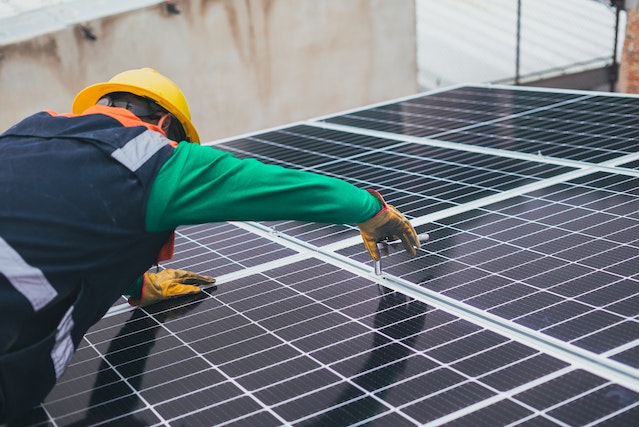
You shouldn’t believe everything you hear about solar panels. Consisting of an array of photovoltaic (PV) cells, solar panels offer a readily available source of clean, renewable energy. You can install them outdoors to power your home or business. There are several solar panel myths, however, that you shouldn’t believe.
#1) Only Work on Sunny Days
While solar panels typically generate more electricity on sunny days, they will still work when it’s cloudy. Sunlight will always be able to pass through the clouds. As these photons make their way through the clouds, they’ll land on the solar panels. Your solar panel system may generate less electricity on cloudy days. Nonetheless, it will still help to power your home or business.
#2) Too Expensive
Solar panels have become cheaper over the years. They still require a monetary investment, but solar panels aren’t necessarily expensive. Residential solar panel systems cost about $15,000 to $30,000. Furthermore, you can take advantage of the Investment Tax Credit (ITC) to receive a federal tax credit of 26% of the total cost of your solar panel system.
#3) Difficult to Install
Most solar panels are relatively easy to install. You can mount them to a roof using brackets and fasteners, and you can wire them using PV wiring. Of course, if you’re not comfortable performing these tasks, you can opt for professional installation, instead.
#4) Cause Roof Damage
You don’t have to worry about solar panels damaging your roof. Most solar panels are relatively lightweight, with an average weight of roughly 40 pounds. As long as your roof can withstand this weight, they shouldn’t damage it.
#5) Prevents Power Outages
It’s important to note that solar panels typically won’t prevent power outages. Even if your home generates 100% of its electricity from a solar panel system, solar panels won’t keep the lights running during a grid-based power outage. This is because utility service workers may need to access homes or businesses with solar panels. Therefore, they must be able to cut off the power to them – even if the homes or businesses have solar panels.
#6) Don’t Work in Subfreezing Temperatures
Another common myth is that solar panels don’t work in subfreezing temperatures. Temperature can, in fact, affect the efficiency of solar panels. Solar panels, though, are actually more efficient in cold temperatures than warm temperatures. And they can still generate electricity in subfreezing temperatures.

